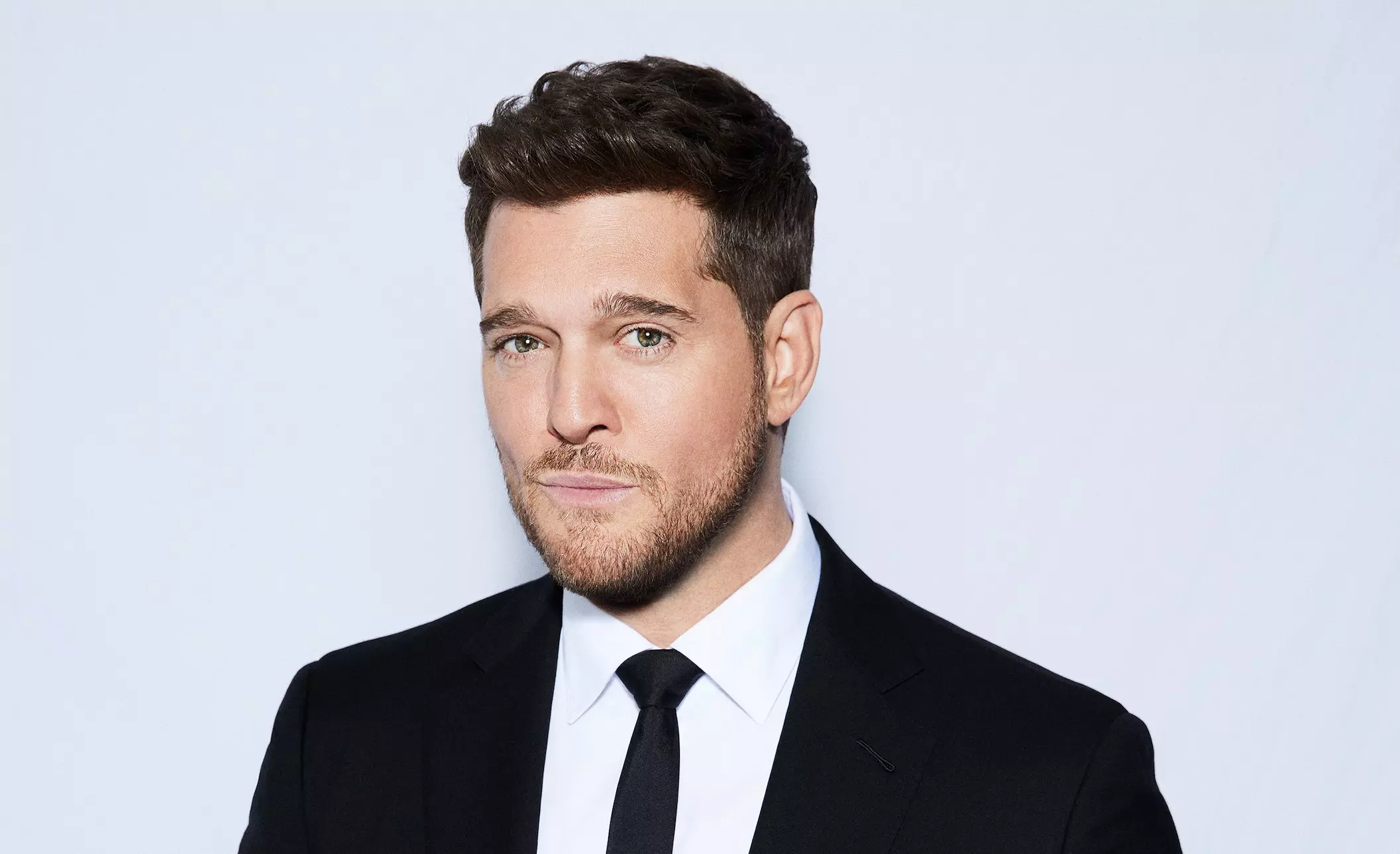Photo: Terry Wyatt/Getty Images
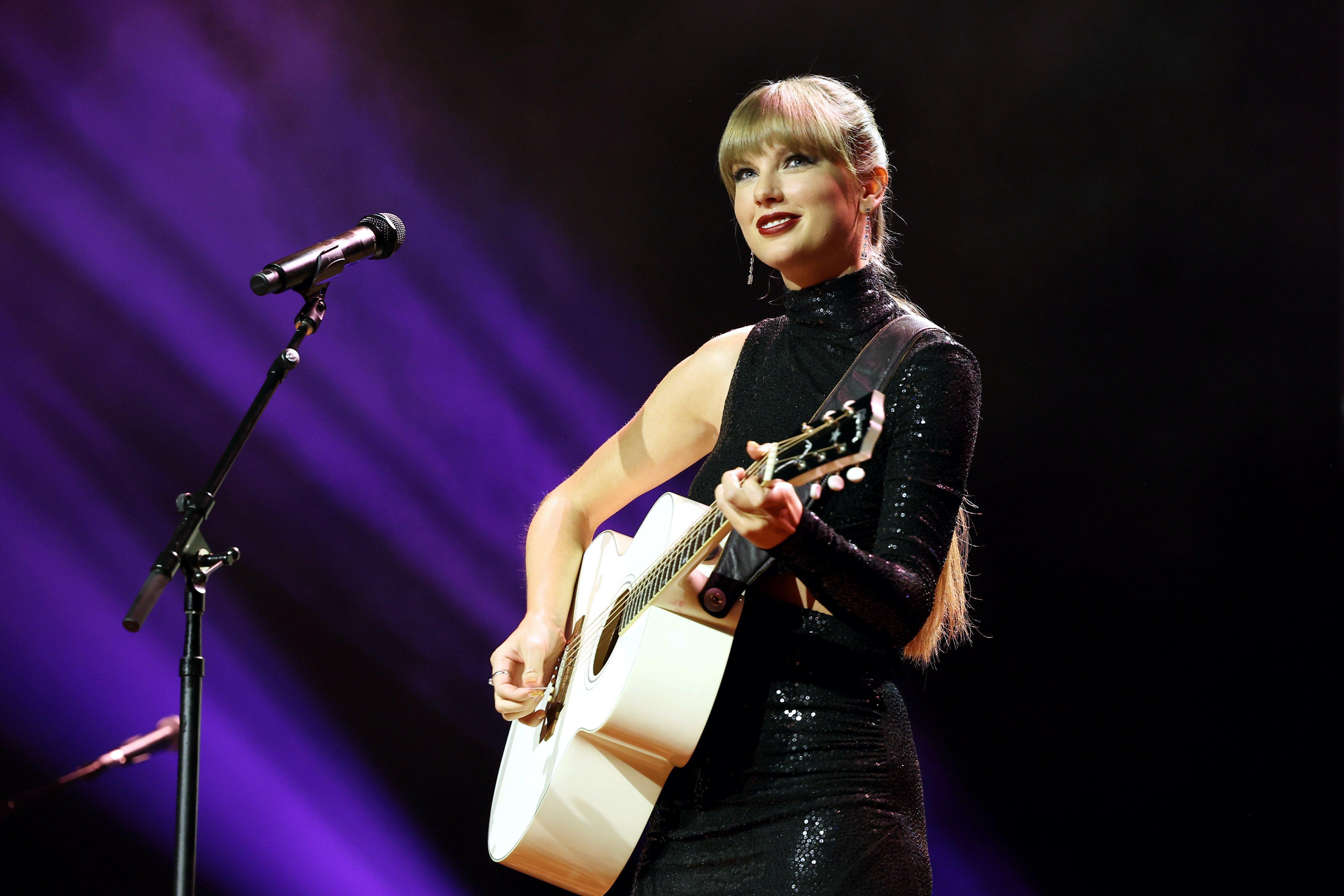
list
5 Takeaways From Taylor Swift's New Album 'Midnights'
Taylor Swift is still full of surprises — and back with darker pop than ever before — on her tenth studio album, 'Midnights.'
Taylor Swift is dressing for revenge. Back when August was slipping away, the singer stepped onto the MTV Video Music Awards red carpet in a silver crystal dress dripping with reputation nostalgia.
On what just so happened to be the 13th anniversary of Kanye West infamously interrupting her speech, the nod to reputation felt like a glaring sign of something about to come. So when she accepted the biggest award of the night, many fans expected her to finally announce another re-recording — but to everyone's surprise, she announced her tenth studio album.
Two months later, the clock struck midnight on Oct. 21, and Midnights arrived like a dream. Across a velvety electropop landscape sculpted by close collaborator Jack Antonoff, Swift untangles her late-night thoughts and deepest secrets across 13 — well, 20 — tracks.
"Midnights is a collage of intensity, highs and lows and ebbs and flows," shared Swift on Instagram. "Life can be dark, starry, cloudy, terrifying, electrifying, hot, cold, romantic or lonely. Just like Midnights."
Amid the mayhem, Swift proves she can make the whole place shimmer on Midnights — she is a mastermind, after all. Here are five key details to know about Taylor Swift's new album, Midnights.
She's Still The Queen of Surprises
When folklore dropped within a day's notice in July 2020, it was the surprise to end all surprises. Then, less than five months later, she pulled it off again when folklore's sister album, evermore, arrived that December.
Though she didn't take the same approach with Midnights, Swift proved she still has tricks left to play. Three days before the record dropped — and as eager album conspiracies flew about on TikTok — the star announced via TikTok that "a special very chaotic surprise" would drop at 3 a.m. EST.
Right on time, Swift unveiled the surprise "3am Edition" of Midnights, adding seven more songs to the LP. Similar to her beloved "From The Vault" tracks, the additions expanded on the mystifying mayhem of the late nights that inspired Midnights — and further proved Swift as a master of surprises.
It's One Of Her Darkest Albums Yet
Although Twitter pokes fun at some of the album's glaring one-liners that feel like outtakes from reputation — take "Draw the cat eye sharp enough to kill a man," for example — Midnights glimmers with some seriously dark moments.
"I gave my blood, sweat, and tears for this/ I hosted parties and starved my body," Swift sings on track five "You're On Your Own, Kid." The singer previously opened up about body dysmorphia and eating disorder in her documentary Miss Americana, and this appears to be the first time she's referencing those struggles in her music. While Swift comments on her relationship with the media frequently across her discography, this lyric especially stings, relaying how the media impacted her both emotionally and physically.
In her reputation era, Swift assured people of her cutthroat confidence. But on Midnights, she finds self-assurance in a different way, with a composed, moody vulnerability that still has edge — many f-bombs included. She edges into darker stories, digging up particularly painful moments from her past.
On "Would've, Could've, Should've," she reenacts "Dear John," her disgracing Speak Now track about her relationship with John Mayer. This time, rather than thinking out loud, she demands back years of her life: "Give me back my girlhood, it was mine first, and I damn sure never would've danced with the devil, at nineteen."
Midnights may not be quite as stylistically dark as reputation, but lyrically, it goes beyond karma with maturity and poise — which may be even more scathing than her 2017 snake-wrapped declaration.
It's Giving reputation and Lover
Swift is a master at carving out musical eras, but Midnights feels like less of a reinvention and more of a recycling. And as the singer noted herself, Midnights draws upon her past eras to stitch together "the stories of 13 sleepless nights scattered throughout my life" — in other words, those reputation parallels aren't entirely coincidental.
The album marks Swift's exit from the folklorian indie woods and return to her fast-lane pop reign. She balances the moodiness of reputation and sweetness of Lover, incorporating sleek synth, distorted vocals (shoutout to the "Midnight Rain" jumpscare) and subtle Bleachers-like horns. And though none of the tracks have the radio-readiness of a "...Ready For It?" or "You Need To Calm Down," Midnights persists as both resilient and cohesive.
As much as Midnights feels like a darker patchwork of reputation and Lover, the album even sparkles with hints of 1989's staple formulas and folklore's dense lyricism. "Labyrinth" simmers with hints of evermore's ethereal "gold rush." Even the "It's me, hi" on "Anti-Hero" recalls Red's colloquial delivery from "We Are Never Ever Getting Back Together." Tumultuous yet wistful, Midnights whirls as a reminiscent pastiche.
She Doesn't Give A Damn
Swift declared on reputation that she was done taking hits from the media and haters. On Midnights, she continues to drive this point home with a few more curse words, and a little less vengeance.
Sure, she sings "You're talking s— for the hell of it" on "Karma," and "Don't get sad, get even" on "Vigilante S—" — but while Swift and karma "vibe like that," she does peer past revenge. As Midnights swirls with feminist themes, Swift calls out how she's been slotted into gender roles, recalling Lover's single "The Man" and folklore's "mad woman."
On synth pop opener "Lavender Haze," she criticizes "the 1950s s—" the world wants from her, noting how "The only kinda girl they see/ Is a one-night or a wife." Later, on the electropop track "Midnight Rain," Swift similarly notes her independence: "He wanted a bride, I was making my own name."
Midnights also reflects on grief, but it simultaneously depicts a free-spirited Swift. In "Bejeweled," it's easy to picture Swift giving a little smile, glancing over her shoulder and saying, "And by the way, I'm still going out tonight" before closing the door.
It Might Be Her Most Personal Album Ever
While diaristic songwriting has always been Swift's M.O., Midnights feels especially poignant.
It marks a profound moment in her career, standing as the most assorted — though perhaps haphazard — album in her discography. Its down-to-earth, electropop magnetism comes from Swift's ability to draw from her previous eras, but lyrically digs deeper than she's ever dug before.
Per usual, Swift offers serious reflections on her life and love, but with more musing and maturity than her past albums. Past the "industry disruptors and soul deconstructors" on "Sweet Nothing," she runs home to her lover's unconditional love: "You're in the kitchen hummin'/ All that you ever wanted from me was nothing." Wrapped in the softness of "Labyrinth," she sings, "I'm falling in love/ I thought the plane was going down/ How'd you turn it right around?" with chasmic sincerity.
On "Anti-Hero," she sings, "I'll stare directly at the sun, but never in the mirror/ It must be exhausting always rooting for the anti-hero." Beyond the Swiftian quirks of its 30 Rock reference and imagining of her own murder, the song serves as the album's thesis statement in some ways: it's the perfect, pensive balance of self-awareness and self-doubt.
Restless (or shall we say, sleepless) and mercurial, Midnights tosses and turns between these two gray areas — and it's all by Swift's design.
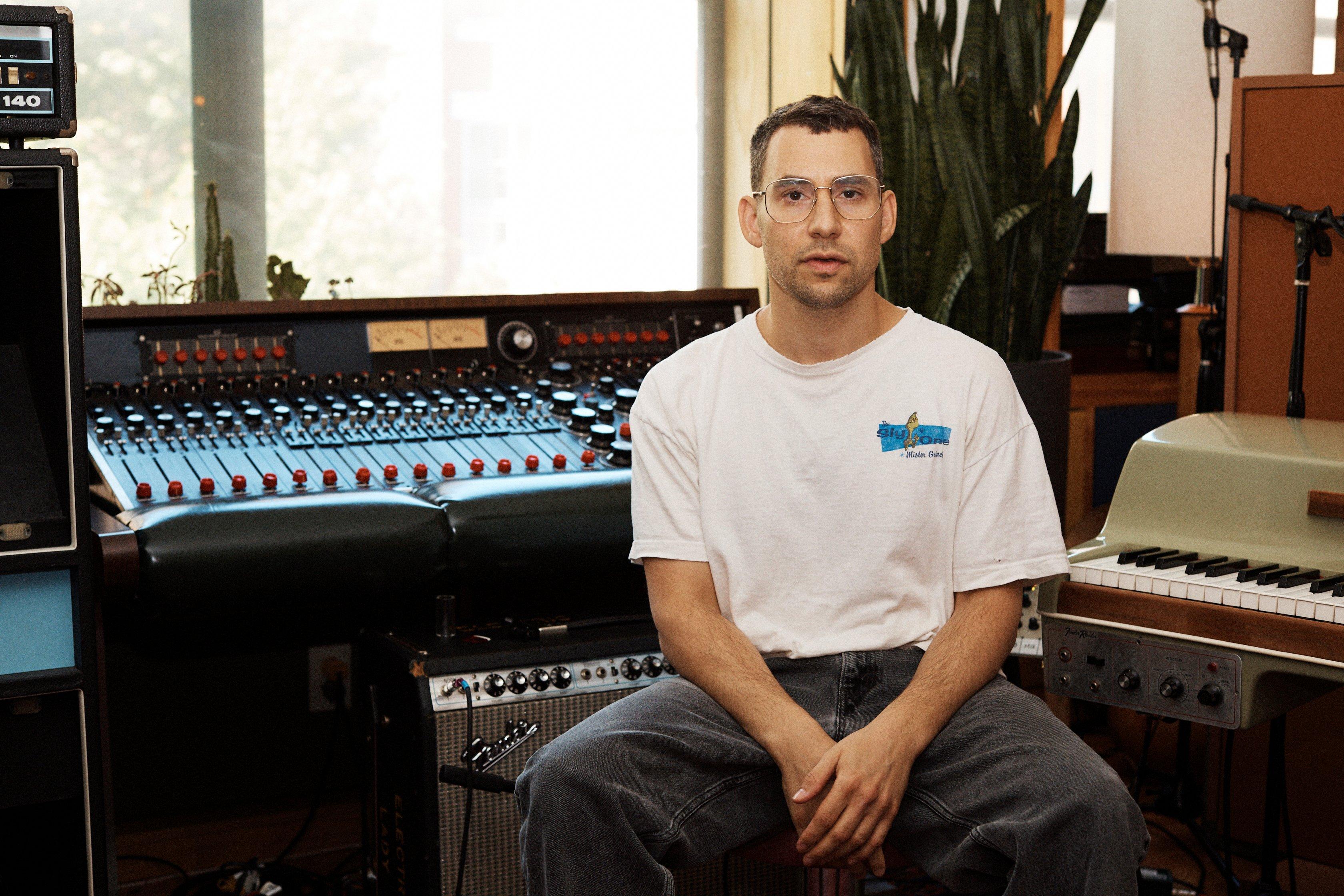
Photo: Alex Lockett
interview
Jack Antonoff's "Grand Desire": Why Working With Taylor Swift, Sabrina Carpenter & Bleachers Is His Dream Creative Playground
Jack Antonoff has a simple wish: to "write and produce things and play live." The GRAMMY-winning producer is living his dream, and discusses his roster of all-star collabs, creating studio vibes, and the importance of looking back.
"I think collaboration boils down to the core belief that something can work," Jack Antonoff recently told GRAMMY.com. "When I make an album with someone, I'm filled with faith that much more in my life or the universe can work, which is definitely a reason why I do this."
The 11-time GRAMMY-winning singer, songwriter and producer has worked with many of the biggest modern pop stars — from Taylor Swift, Lana Del Rey and Lorde, to St. Vincent and Sabrina Carpenter — but his core focus has never changed. Antonoff simply wants to make music he loves with people he loves, and perform it live.
Antonoff not only holds many peoples' dream job of being Swift's go-to collaborator, but he's been having a banner year filled with notable creative projects and big wins. At the 2024 GRAMMYs, he won Producer of the Year, Non-Classical for the third year in a row. He also earned two more GRAMMYs that night, sharing Best Pop Vocal Album and Album Of The Year with Swift for his extensive production work, co-writing and instrumentation on Midnights. In March, he released his fourth album as Bleachers and launched a lengthy world tour with the band, which will wrap with their biggest-ever (sold-out) gig at Madison Square Garden on Oct. 4.
His 2024 production credits include Swift's The Tortured Poets Department, four of breakout star Carpenter's Short n' Sweet tracks including No. 1 hit "Please Please Please," and even one of Kendrick Lamar's Drake diss tracks, "6:16 in LA." He also curated and produced the soundtrack for Apple TV's WWII couture period drama "The New Look," featuring modern renditions of classics by Lana Del Rey, Florence Welch, Nick Cave and others. He was also tapped by Tony-winning director Sam Gold to create the soundtrack for a modern reimagining of "Romeo and Juliet," debuting on Broadway later this month.
Before Antonoff became one of the most in-demand producers in pop, he spent his time in bands. As a high school senior in 2002, he formed indie rock outfit Steel Train with several classmates, who'd have a decade-long run playing big festivals including Bonnaroo, SXSW, Warped Tour and Lollapalooza. Afterwards, he played guitar in the power pop trio fun. with whom he earned his first six GRAMMY nods and won his first two in 2013, for Best New Artist and Song of the Year for their anthemic hit "We Are Young" featuring Janelle Monáe.
2013 was a pivotal year for the "Tiny Moves" artist, as it also marked his first time he worked with Swift, who then enlisted him to support her transition away from country music on Album Of The Year winner 1989. Antonoff has said that she was the first artist to trust him as a producer, and that their work together, understandably, opened many other doors for him.
GRAMMY.com recently caught up with the prolific producer and artist for a dive deep into his collaborative magic, the latest Bleachers album, and why he thinks pop is whatever you want it to be.
This interview has been edited and condensed.
There's a lot to talk about just from this year, it's pretty crazy.
When the Bleachers album came out and I was starting to do interviews, I had this really weird experience. Interviews recap things that have happened, so [they make me] realize how little I think about the past. I don't know if that's a good or bad thing.
I think it's a symptom of how much my life is future-focused — which is something I really like and fear about my life at the same time. The studio is such a forward place. You're thinking about the next thing, how to find this next feeling in literal and esoteric ways. [Being on] the road is one of the most literally forward places — every day you're somewhere new and you're thinking about the next day and the tour.
I feel like I'm trapped in the future. It's nice and I've designed it that way. But sometimes I get a little scattered or emotional when I talk about things that have happened because I'm thinking about them for the first time. I don't have canned answers.
You're often called a super-producer, which is valid; you've worked with so many big artists and on so much music that everyone hears. But what are you desiring as an artist and a producer lately?
The grand desire that I have has never changed, because it's so much bigger than any amount of success. That desire is to write and produce things and play live. That's a big part of why I love this work so much is because nothing can really help you with that besides your soul. You could be in the most expensive studio in the world with all the best engineers, but there's no proof that [that setting] equals a better song than just sitting in your room.
That fleeting feeling of knowing that it comes and it goes, and you just have to be there to grab it, is such a deep connected-to-the-cosmos feeling.
When you're working on music, at what point do you get excited about a song or know that it's going in the right direction?
When it does happen is when I start to push it forward in a real way. There's an amazing amount of f—king around in search of that feeling, and you never know where you're going to get it. It's sometimes just moving around instruments or lyrics or thoughts with no direction until one thing feels exciting, and then you follow that thing.
It's a really fun process, and it can be anxiety-producing. It's a different kind of fun when you do it with someone else, because you're on this weird adventure together. When you're in a room with other people and everyone has that feeling off of one idea or one sound, it's a very connecting feeling.
When you're working on your own music, particularly with Bleachers, it's mostly just you in the studio, right?
Yes. But the Bleachers process is oddly similar [to my producing], just sort of flipped. I work with producers on Bleachers because I need it sometimes. I've always had these two sides of writing my music and having my own band and needing help with that in various ways. I've learned so much on either side.
Being on the road with Bleachers, remarkably, keeps me connected to everything that matters the most when I'm making records with other artists because I can very easily visualize real fans, the people who live and die by this music. To be acquainted with them every night is a very powerful experience. It always just reminds me who I'm in conversation with, because I think it's easier than ever to get lost.
You've had a busy summer on the road with the Bleachers. How has it felt performing this album live?
It's really my favorite ever. It's the first album I've made with Bleachers that feels like a response to this thing that happens at the shows. Somewhere during the Take the Sadness Out of Saturday Night [tour in 2021], the shows got really crazy and loose and kind of off the wall. There was something about it where I was kinda like, Okay, you want to play chicken? [Laughs.] I went into the studio and I tried to one up them. I never felt that before. This time I was talking right at [my fans], which is a luxury of being known by them.**
The first song we ever released was "I Wanna Get Better," which is almost a Wikipedia page of my life, it rattles through everything I'm going to be talking about [forever]. It feels like now I can wax on about something, and they know what I'm talking about.
Is that why you decided to self-title this album?
The actual decision to self-title is a gut feeling. But the real reason is it felt like an earned moment, like we had arrived somewhere where everything had completely formed.
Every reference point [while] making this album became about our own history and our own mythology. In the past, I would have said, Make it like a Mick Fleetwood or Ringo kind of feel. Now the reference point would be Play it like you do at this point in the set when the wheels have blown out for you. You tour and spend enough time with people where it becomes almost like conversations with your best friends, the reference points become your own shared history.
What called you back into the studio to make your own music?
I never know. My life is a lot less structured than people would think. The way I make Bleachers records — and even in everything I make with other people — there's a real looseness to it because I like to be [in the studio] when I feel incredibly excited to be there. I schedule things, just not terribly far out.
For example, Lana and I or Taylor and I have never once been like, "Let's book out a month here." It's sort of like, "What are you doing today? I got this idea, come over." And then if that's feeling good, it's like, "What are you doing tomorrow? Let's keep this going." It's very [much] catching it when it's happening. Some days I'm in the studio for an hour, some days for 16 hours; it's all based on how I feel.
Are you always working on music or ideas — is there always something that's coming out of you?
Lately — the past couple years — I've been feeling the need to create a lot. I feel connected to something, and I feel a lot of joy and that good buzzy anxiety of having these ideas and wanting to hear them, which reminds me of my earliest memories of writing and producing music. When you hear the thing in reality — you can press play on a thing that was a thought — it's the most incredible experience.
"Alma Mater" is such a poetic way to refer to an ex. How did that track come together? Did you have Lana del Rey in mind for it?
No, we were just f—ing around. I think a lot about where you put people [when listening to a song]. On that song, I wanted to put you in a room with me and her, so I left a lot of the elements of us being in the room writing it, messing around. We kept singing back and forth like, "She's my alma mater, f— Balenciaga." [Chuckles.] The lyrics were just making us smile.
As it started to come together, this idea of referring to an old relationship as an alma mater, that excited me and made me want to write that story. That's kind of what an old relationship is: a school that you go to where there's a whole set of friends, and a whole culture, and when it's over, poof, it's gone.
Obviously, you worked with Sabrina Carpenter on some of her new music…
How brilliant is she?
Read more: How Sabrina Carpenter Became A Pop Queen: Tracing Her Journey To 'Short N' Sweet'
She's around the same age Taylor Swift was when you started working with her. Do you see any parallels with Sabrina where Taylor was at then? Sabrina has said it was a really big deal to get to work with you. What was it like working with her?
It was a big deal for me to get to work with her. The great parallel is brilliant writing and being able to write about one's life in the most vulnerable and powerful way. It sounds so simple, but it's the rarest thing to be able to write about your life and to be able to make it so specific and also so poetic. You know it as soon as you hear it.
Can you talk a little bit about the sonic landscape on "Please Please Please"?
We were thinking a lot about joy and the kind of fantastical nature of ABBA, Dolly [Parton] and ELO that I felt would fit her voice and lyrics so well. She [does] this quick vacillation between really cheeky then really emotional, back to really sarcastic, and then she smacks you over the head with something so serious and real that you're stunned. It's my favorite kind of music.
One of the reasons it's so thrilling to me that so many people have responded to it is because it doesn't sound like anything that's going on at all, it almost sounds like the opposite of everything going on. Those are my favorite moments; when something out of left field grabs everyone's attention.
Those bubbly sounds right when "Please Please Please" comes in are not in time. You have a LinnDrum ['80s drum machine] and a live drum playing this tight beat and these country-picking acoustic guitars. Then you have these wobbling synths that, in my head, I'm playing the same way someone would play it when it was first invented because you're just playing along to the track, you're not locking it to any MIDI or anything. I was thinking a lot about that time period — I think about [it] all the time — when I was with Sabrina.
How has your creative partnership with Taylor Swift and your trust in each other evolved in the decade-plus you've been working together? And what has been the coolest thing for you to see in your ongoing work?
As far as evolution, we just have our own language. I saw her play last night [at Wembley Stadium in London], and actually played some songs there too. Most of the time when we work it's just her and I in a room, usually my apartment or Electric Lady [Studios]. To see [the songs] in literally the biggest spaces and retain all of [their] importance and soul and feeling like it's that for every single person in that crowd, it's like the absolute coolest.
She's the absolute greatest of all time, with a never-ending hunger to push forward.
You and Taylor both have such an affinity for witty, nerdy, literary references, and poetic phrasing. How do you pull that out in a way that makes sense in a pop song structure?
I think that tendency is just inherent in both of us. But I think the concept of pop structure is whatever the hell we want it to be. The worst of pop music is ambulance-chasing. The real inspiration is to be your own loud light-up machine shooting down the street. The things I've loved about pop music have just invigorated me to believe that pop music is whatever the hell the person making it says it is, and then everyone else gets to argue if it is or isn't.
I don't sit around and think about genre, placement, or who they're going to satisfy. All those thoughts are not just the death of making things. It's pretty easy for me to only consider that gut feeling. I'm just fascinated by how people hear things. There's no genre of music that I think is better or worse than any other one.
What can you tell us about the upcoming Romeo + Juliet Broadway show you soundtracked? Was it a different creative exercise for you to score such a well-known text; how so?
It was a very different process which is exactly why I wanted to do it. Credit to [director] Sam Gold who really let me fly out to left field and back. I'm about 50 percent through it and I'm going to finish it when I'm home from this tour. It's been something that has opened my world in many ways, to a whole new side of scoring and writing for a musical.
You have a lot of GRAMMYs, 11 of them —
People always ask me if it gets normal. No, it doesn't get normal! It's crazy.
One, where do you keep them?
That's one thing I've never really figured out, they kind of move around. Everything in my life moves around a lot, so I don't have a satisfying answer for that one.
And going back to 2013 when you won your first GRAMMYs with fun., how did you feel that day?
F—ing shocked. As I was saying, I don't really sit around thinking about the past because it's the opposite of the job. What's so shocking about those moments is you're surrounded by family and the people you love and work with, and it's this huge moment to think about how you got to that point.
My biggest takeaway of these experiences that force you to stop and think about the road behind is just how heavy they are. All of us are held up by really special people, whether it's partners or parents or siblings, fans, engineers, managers, loved ones. If you have amazing people around you, it's the best feeling in the world. That's my favorite part about any award, it feels like it's for everyone that got you there.
The Latest Pop Music News & Releases
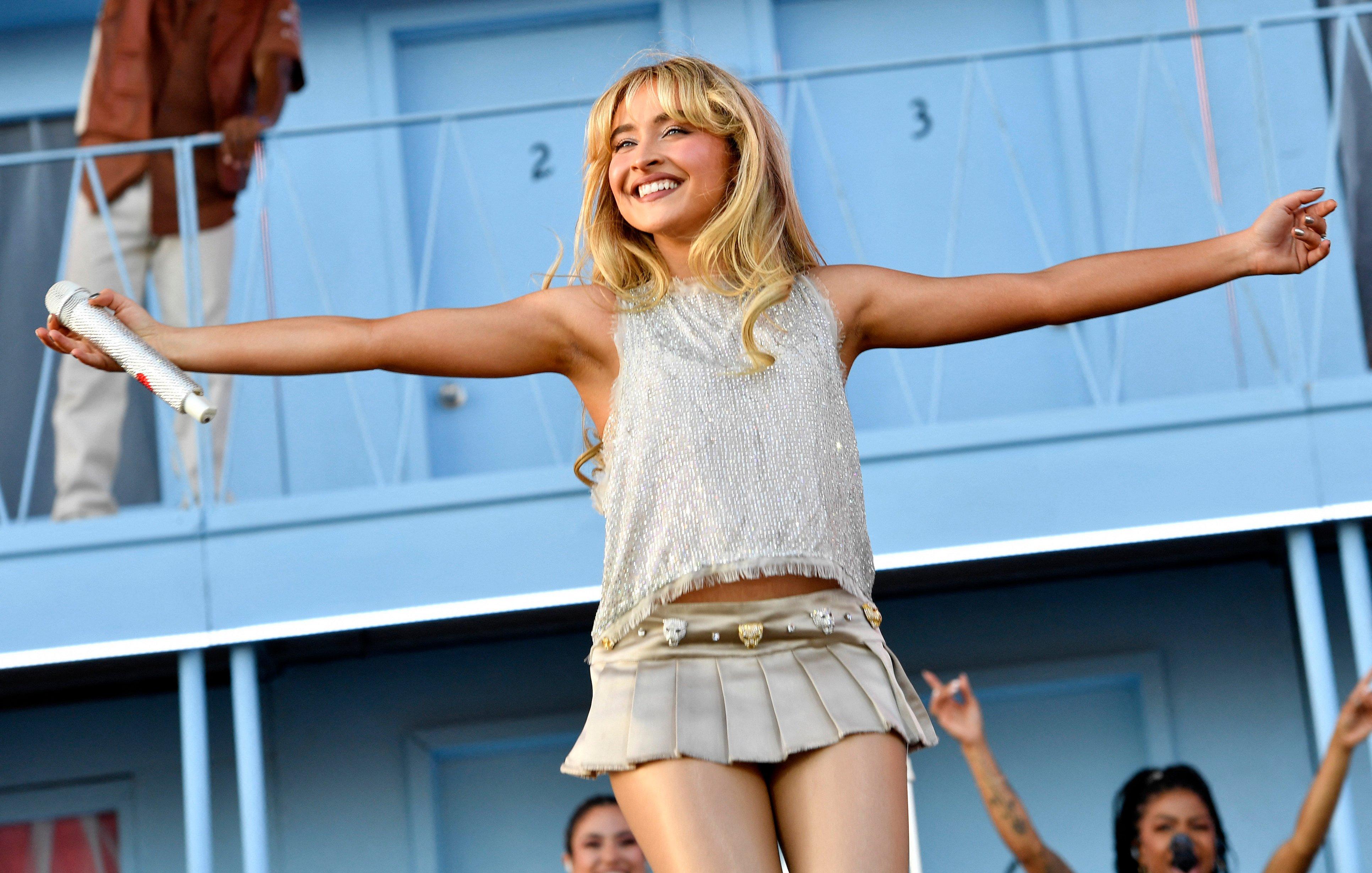
Photo: ALERIE MACON / AFP via Getty Images
feature
How Sabrina Carpenter Became A Pop Queen: Tracing Her Journey To 'Short N' Sweet'
More than a decade in the making, Sabrina Carpenter is living out her superstar dreams. As she releases her new album, 'Short n' Sweet,' look back on the chart-topping star's journey and how every venture helped her evolve into a pop phenom.
Sabrina Carpenter is the first to admit that it's taken her a bit of time to find her way to the top of the music industry. She even likens herself to the tortoise in the fable "The Tortoise and the Hare" — even if she didn't want to believe the metaphor growing up.
"Something that my mom always said to me as a little girl that really annoyed me was that I am the tortoise… throughout my life, [I was] being told, 'Sabrina, you're the tortoise, just chill,'" Carpenter recalled while accepting the Variety Hitmakers Rising Artist Award in December 2023. "In moments of frustration and confusion it can feel like a letdown, but it turns out it's actually a very good thing."
It's been a very good thing for Carpenter, indeed. A decade since the release of her debut single, the singer/songwriter isn't just breaking through — she's one of pop's new reigning queens. Over the last year, Carpenter has nabbed her first No. 1 song on the Billboard Hot 100, made a stellar debut at Coachella, and performed on "Saturday Night Live," all the while racking up billions of streams on her music new and old. It's all built excitement for one of the most anticipated pop albums of the summer: Short n' Sweet.
As Carpenter unveils her new album, take a deep dive into her decade-long journey to pop stardom.
Getting Started: Disney Breakthrough
Growing up, Carpenter filled the sounds of her family home in Pennsylvania with covers of songs like Adele's "Set Fire To The Rain" and "Picture to Burn" by future Eras Tour companion Taylor Swift (more on that later). After submitting videos for a singing contest spearheaded by Miley Cyrus, Carpenter would get her first taste of success. Placing third, she caught the eye of Hollywood Records, who signed her following the competition.
Simultaneously, Carpenter also began pursuing acting, landing guest spots on series like "Law & Order: Special Victims Unit" in 2011 and joining "The Goodwin Games" in 2012. In 2014, she landed a lead role in the Disney Channel series "Girl Meets World," a spin-off of the beloved '90s series "Boy Meets World," which served as a breakthrough moment for the burgeoning star — and a catalyst for her music career.
Just before the show debuted, Carpenter released her debut single, "Can't Blame A Girl for Trying," the title track to her debut EP that arrived a month later. While the four-track EP was the typical output of a teenage Disney star — bubblegum pop sounds with digestible, family-friendly lyricism — it showed off her youthful timbre and offered themes that would become prevalent later in Carpenter's songwriting: love, heartache, and navigating life.
A year later, she released her debut album, Eyes Wide Open. A mix of pop with folk and country influences — a soundscape that remains on Short n' Sweet — Carpenter's debut showed maturity and growth following Can't Blame A Girl For Trying; songs like "Eyes Wide Open" and "We'll Be the Stars" showed a more introspective side, reflecting on the pressures of being in the spotlight and the journey of finding her identity. Eyes Wide Open also hinted that Carpenter was beginning to hone her songwriting skills, penning four of the 12 tracks.
It would be on her 2016 sophomore album, EVOLution, where Carpenter would find confidence as a songwriter, co-writing all but one song on the 10-track project. In turn, the lyrics reflected her growing sense of self and a new perspective on past themes, like embracing non-romantic forms of love in "All We Have is Love," being there for a struggling friend in "Shadows," and learning to assert boundaries in "Space."
EVOLution transitioned Carpenter out of the teen pop aesthetic into a more sophisticated sound, experimenting with dance-pop and techno sonics. Genre versatility would become a throughline of sorts for Carpenter, and EVOLution foreshadowed the multifaceted musicality that was to come.
Shedding Disney: From Child Actor To Pop Star
After "Girl Meets World" came to an end at the beginning of 2017, Carpenter was ready for reinvention. Much like Britney Spears' Britney and Cyrus' Can't Be Tamed before her, as Carpenter grew into an adult, she felt like she needed to shed the Disney-fied image that has become a rite of passage for teen stars. Thus began the Singular era.
Released in 2018 and 2019, respectively, Singular: Act I and Singular: Act II featured songs that were more risqué and mature in nature. A far cry from her tamer work of the past, the R&B track "Hold Tight" is equal parts sultry and evocative with Carpenter singing, "Wanna keep you in, wanna keep you in right/ Wanna feel your skin, wanna feel it on mine."
As she noted in an interview with Billboard, Singular: Act I was a natural progression for a girl now in her late teens — even if it was against the squeaky-clean image of her beginnings.
"I was known as a fictional character on television with lines that were written for her with an attitude that was portrayed in a way by other people. So for a lot of people, their first impression of me was as a 13-year-old girl [singing] the kinds of songs that she should be singing," she said. "Then, flash forward to 19, and people are asking why I am not singing about the same things that I did when I was 13, as if that's normal."
One of the more notable Singular tracks is from Act I, "Sue Me." Sneakily disguised as a story about a romantic relationship, the song is Carpenter's response to being sued by her ex music managers: "That's my shape, I made the shadow/ That's my name, don't wear it out though/ Feelin' myself can't be illegal." Its tongue-in-cheek and snarky nature would inevitably embolden Carpenter to continue writing more confessional songs with attitude, whether she's responding to media scrutiny in "because i liked a boy" from 2022's emails i can't send, or warning a suitor to be careful in Short n' Sweet's "Please, Please, Please."
Singular: Act I and Act II further helped demonstrate different facets of Carpenter's musicality, with the former leaning into pop tendencies and the latter embracing an R&B flair. And as her final albums with Hollywood Records, she used Singular: Act I and Act II to indicate that she wasn't going to let any sort of previous perceptions hold her back. Their coming-of-age themes showcased Carpenter as an artist coming into her own — regardless of whether listeners wanted to keep her in the Disney box or not.
Reintroducing Herself: Artistic Authenticity & The "Nonsense" Effect
While the world was going through a period of change amid the COVID-19 pandemic, so was Carpenter. She signed with Universal Music Group's Island Records in 2021, and soon she would be able to fully introduce the world to who Sabrina Carpenter is as an artist.
As she noted herself to Variety earlier this year, her 2022 LP, emails i can't send, "marked the beginning of a really freeing and artistic time for me." Once again, she co-wrote every song on the album; this time, though, she only had one co-writer for each track, and even wrote two songs solo ("emails i can't send" and "how many things") — proving that she was more assured as a songwriter than ever.
As a result, Carpenter's knack for confessional songwriting is on full display. emails i can't send represents a reflective time capsule of sorts; one that brings the curiosity of her earlier work with the perspective and wisdom of a young adult. Her growing fame meant there was more attention on her personal life, and emails i can't send allowed her to reclaim her narrative and express her side of the story.
Carpenter's candidness struck a chord with listeners, and upon the release of emails i can't send in July 2022, it was clear Carpenter was on a new trajectory. The album debuted at No. 23 on the Billboard 200, which marked her highest entry on the chart to date (as of press time); the 2022 stretch of her Emails I Can't Send Tour sold out in less than a day. And once "Nonsense" was released as a single that November, her place as a rapidly rising star was solidified.
"Nonsense" was initially written as a means to an end after Carpenter was writing a sad song and had writer's block. Now, the track is the epitome of Carpenter's lyricism, weaving together her wit and humor with an infectious hook. First gaining traction on TikTok because of its catchiness, it's become a beloved part of Carpenter's canon thanks to her inventive and bespoke outros during her live shows. It's since become a tradition for fans to check to see what outro she created for each performance, adding to the fan fervor.
Carpenter further satiated fans' taste for her cheeky lyricism in March 2023, when she released emails i can't send fwd:, the deluxe version of her album, which featured a new track called "Feather." She took the playful, flirting energy of "Nonsense" and infused "Feather" with buoyant, airy production that mimics the feeling of self-liberation after moving on from a relationship. Earning Carpenter her first pop radio No. 1, "Feather" proved that the singer's audacious style was taking hold — and it set the stage for an even bigger 2024.
Becoming A Superstar: Eras Tour, "Espresso" & Beyond
After her own extensive — and very sold out — tour in support of Emails I Can't Send, Carpenter's rising star status was further confirmed by pop's current queen, Taylor Swift. The singer earned a coveted opening slot on Swift's monumental Eras Tour in Mexico, South America, Australia, and Asia.
Just after her last Eras Tour show in March 2024, Carpenter hinted that her own new era was beginning. "I'm starting to feel like I've outgrown the songs I'm singing," she admitted to Cosmopolitan, "which is always an exciting feeling because I think that means the next chapter is right around the corner."
That chapter began with "Espresso," which dropped a day before her debut Coachella performance. Doubling down on the playful, self-assured vibe of "Nonsense," the song immediately hinted that big things were coming for Carpenter, debuting at No. 7 on the Billboard Hot 100, where it peaked at No. 3.
Upon announcing her sixth album, Short n' Sweet, Carpenter released "Please Please Please." Combining her now-signature playful, carefree lyricism with an airy, disco-tinged sound, "Please Please Please" didn't just present Carpenter as a confident superstar — it became her first Hot 100-topping smash.
Carpenter has referred to Short n' Sweet as the "hot older sister" of emails i can't send. "It's my second 'big girl' album; it's a companion but it's not the same," she explained to Variety, to whom she also admitted she feels a "sense of separation" from her work prior to emails. "When it comes to having full creative control and being a full-fledged adult, I would consider this a sophomore album."
It's apt, then, that her Short n' Sweet collaborators — including songwriters Julia Michaels, Amy Allen and Steph Jones — are largely the same as the team from emails i can't send. "I've really honed in on the people that I love making music with," she told Rolling Stone in June.
Even more telling of the direction she's heading is her work with one of pop's hottest producers — and Swift's right-hand man — Jack Antonoff, for the first time. At a GRAMMY Museum event with Antonoff himself, Carpenter debuted the country-infused "Slim Pickins," presenting yet another pop style from Short n' Sweet. And as "Slim Pickins," "Espresso" and "Please Please Please" indicate, Carpenter's knack for infectious and edgy lyrics isn't just the throughline across Short n' Sweet — it's become the epitome of both her artistry and her stardom.
Just like her metaphorical friend the tortoise, Carpenter's long but steady journey has clearly paid off. As she's figured out who she is on her own terms, she's manifested the bonafide superstardom she's always imagined.
"I never had the plan B, and it wasn't even a thought in my mind that it wouldn't work out," she told Rolling Stone. "I just always knew it was about not if it would happen but when it would happen."
For Carpenter, every chapter of her artistry has built on the last; she's refused to rest on her laurels and continuously pursued new directions. She's creating work that wholeheartedly reflects her, and growing a loyal fan base because of it. Her next album might be named Short n' Sweet, but her time as a pop superstar will be anything but.
All Things Sabrina Carpenter
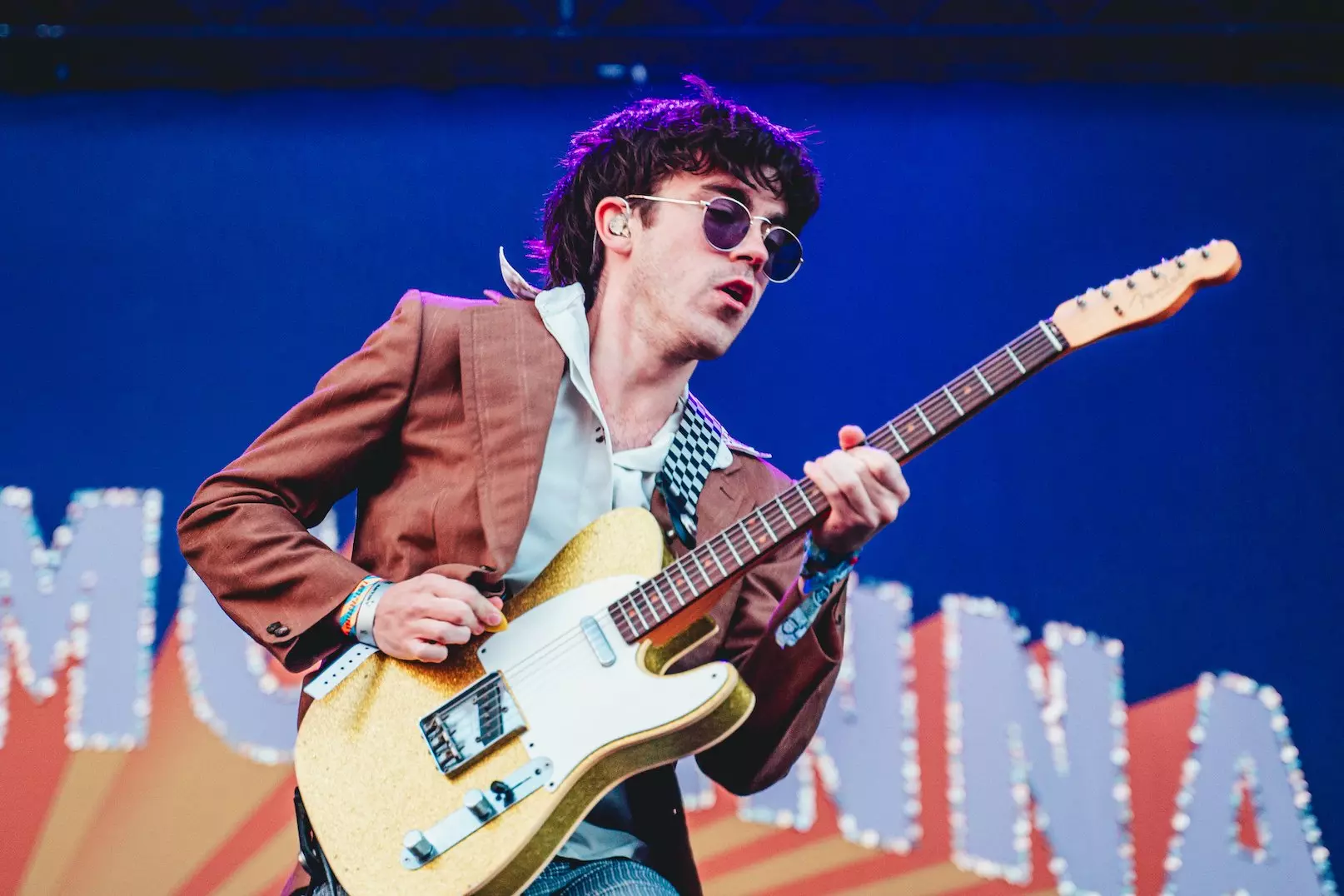
Get To Know Declan McKenna, The British Rocker Shaking Up The Indie Scene

2025 GRAMMY Nominations: See Shaboozey, Anitta, Teddy Swims & More Artists' Reactions

Beyoncé & Taylor Swift Break More GRAMMY Records, Legacy Acts Celebrate Nods & Lots Of Firsts From The 2025 GRAMMY Nominations
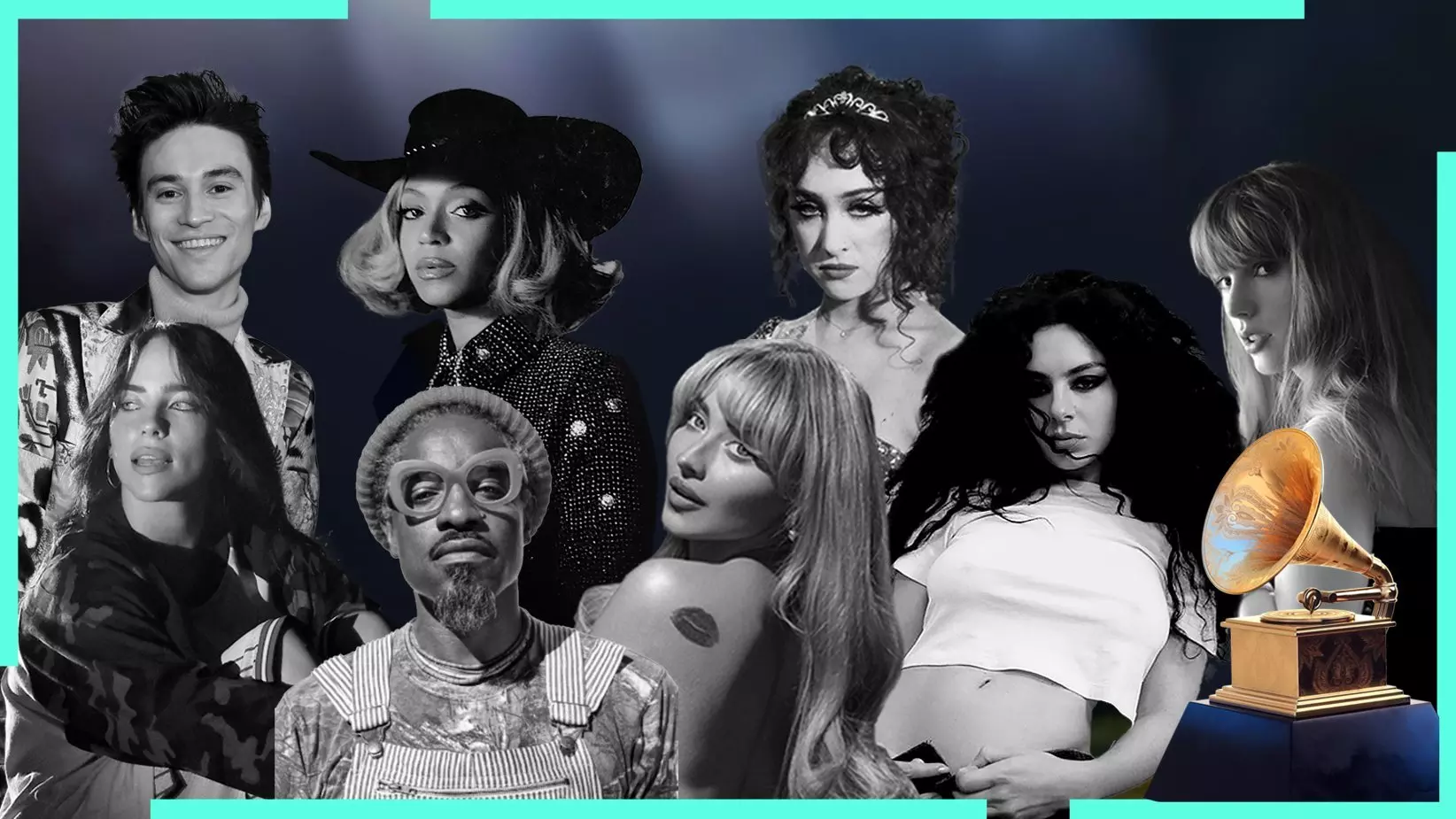
2025 GRAMMYs Nominations: Album Of The Year Nominees
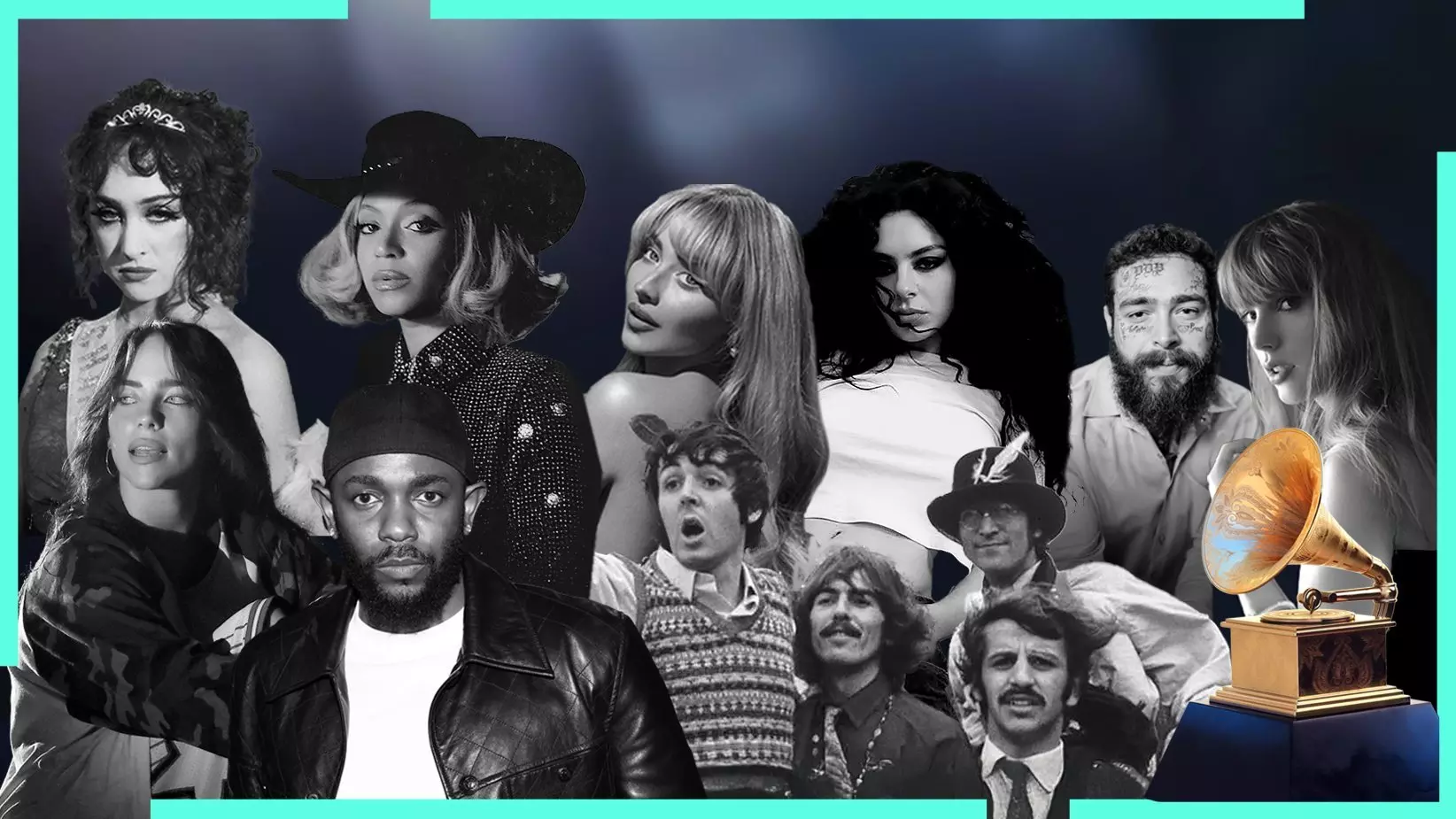
2025 GRAMMYs Nominations: Record Of The Year Nominees

Photo: Jeremy Cowart
interview
Behind Ryan Tedder's Hits: Stories From The Studio With OneRepublic, Beyoncé, Taylor Swift & More
As OneRepublic releases their latest album, the group's frontman and pop maverick gives an inside look into some of the biggest songs he's written — from how Beyoncé operates to Tom Cruise's prediction for their 'Top Gun' smash.
Three months after OneRepublic began promoting their sixth album, Artificial Paradise, in February 2022, the band unexpectedly had their biggest release in nearly a decade. The pop-rock band's carefree jam, "I Ain't Worried," soundtracked Top Gun: Maverick's most memeable scene and quickly became a global smash — ultimately delaying album plans in favor of promoting their latest hit.
Two years later, "I Ain't Worried" is one of 16 tracks on Artificial Paradise, which arrived July 12. It's a seamless blend of songs that will resonate with longtime and newer fans alike. From the layered production of "Hurt," to the feel-good vibes of "Serotonin," to the evocative lyrics of "Last Holiday," Artificial Paradise shows that OneRepublic's sound is as dialed-in as it is ever-evolving.
The album also marks the end of an era for OneRepublic, as it's the last in their contract with Interscope Records. But for the group's singer, Ryan Tedder, that means the future is even more exciting than it's been in their entire 15-year career.
"I've never been more motivated to write the best material of my life than this very moment," he asserts. "I'm taking it as a challenge. We've had a lot of fun, and a lot of uplifting records for the last seven or eight years, but I also want to tap back into some deeper material with the band."
As he's been prepping Artificial Paradise with his OneRepublic cohorts, Tedder has also been as busy as he's ever been working with other artists. His career as a songwriter/producer took off almost simultaneously with OneRepublic's 2007 breakthrough, "Apologize" (his first major behind-the-board hit was Leona Lewis' "Bleeding Love"); to this day he's one of the go-to guys for pop's biggest names, from BLACKPINK to Tate McRae.
Tedder sat down with GRAMMY.com to share some of his most prominent memories of OneRepublic's biggest songs, as well as some of the hits he's written with Beyoncé, Adele, Taylor Swift and more.
OneRepublic — "Apologize," 'Dreaming Out Loud' (2007)
I was producing and writing other songs for different artists on Epic and Atlantic — I was just cutting my teeth as a songwriter in L.A. This is like 2004. I was at my lowest mentally and financially. I was completely broke. Creditors chasing me, literally dodging the taxman and getting my car repoed, everything.
I had that song in my back pocket for four years. A buddy of mine just reminded me last month, a songwriter from Nashville — Ashley Gorley, actually. We had a session last month, me, him and Amy Allen, and he brought it up. He was like, "Is it true, the story about 'Apologize'? You were completely broke living in L.A. and Epic Records offered you like 100 grand or something just for the right to record the song on one of their artists?"
And that is true. It was, like, 20 [grand], then 50, then 100. And I was salivating. I was, like, I need this money so bad. And I give so many songs to other people, but with that song, I drew a line in the sand and said, "No one will sing this song but me. I will die with this song."
It was my story, and I just didn't want anyone else to sing it. It was really that simple. It was a song about my past relationships, it was deeply personal. And it was also the song that — I spent two years trying to figure out what my sound was gonna be. I was a solo artist… and I wasn't landing on anything compelling. Then I landed on "Apologize" and a couple of other songs, and I was like, These songs make me think of a band, not solo artist material. So it was the song that led me to the sound of OneRepublic, and it also led me to the idea that I should start a band and not be a solo artist.
We do it every night. I'll never not do it. I've never gotten sick of it once. Every night that we do it, whether I'm in Houston or Hong Kong, I look out at the crowd and look at the band, and I'm like, Wow. This is the song that got us here.
Beyoncé — "Halo," 'I Am…Sacha Fierce' (2008)
We were halfway through promoting Dreaming Out Loud, our first album. I played basketball every day on tour, and I snapped my Achilles. The tour got canceled. The doctor told me not to even write. And I had this one sliver of an afternoon where my wife had to run an errand. And because I'm sadistic and crazy, I texted [songwriter] Evan Bogart, "I got a three-hour window, race over here. Beyoncé called me and asked me to write her a song. I want to do it with you." He had just come off his huge Rihanna No. 1, and we had an Ashley Tisdale single together.
When you write enough songs, not every day do the clouds part and God looks down on you and goes, "Here." But that's what happened on that day. I turn on the keyboard, the first sound that I play is the opening sound of the song. Sounds like angels singing. And we wrote the song pretty quick, as I recall.
I didn't get a response [from Beyoncé after sending "Halo" over], which I've now learned is very, very typical of her. I did Miley Cyrus and Beyoncé "II MOST WANTED" [from COWBOY CARTER] — I didn't know that was coming out 'til five days before it came out. And when I did "XO" [from 2013's Beyoncé], I found out that "XO" was coming out 12 hours before it came out. That's how she operates.
OneRepublic — "Good Life," 'Waking Up' (2009)
["Good Life"] was kind of a Hail Mary. We already knew that "All the Right Moves" would be the first single [from Waking Up]. We knew that "Secrets" was the second single. And in the 11th hour, our engineer at the time — who I ended up signing as a songwriter, Noel Zancanella — had this drum loop that he had made, and he played it for Brent [Kutzle] in our band. Brent said, "You gotta hear this drum loop that Noel made. It's incredible."
He played it for me the next morning, and I was like, "Yo throw some chords to this. I'm writing to this today." They threw some chords down, and the first thing out of my mouth was, [sings] "Oh, this has gotta be the good life."
It's the perfect example of, oftentimes, the chord I've tried to strike with this band with some of our bigger records, [which] is happy sad. Where you feel nostalgic and kind of melancholic, but at the same time, euphoric. That's what those chords and that melody did for me.
I was like, "Hey guys, would it be weird if I made the hook a whistle?" And everyone was like, "No! Do not whistle!" They're like, "Name the last hit song that had a whistle." And the only one I could think of was, like, Scorpion from like, 1988. [Laughs.] So I thought, To hell with it, man, it's been long enough, who cares? Let's try it. And the whistle kind of made the record. It became such a signature thing.
Adele — "Rumour Has It," '21' (2011)
"Rumour Has It" was the first song I did in probably a four year period, with any artist, that wasn't a ballad. All any artist ever wanted me to write with them or for them, was ballads, because of "Halo," and "Apologize" and "Bleeding Love."
I begged [Adele] to do a [song with] tempo, because we did "Turning Tables," another ballad. She was in a feisty mood [that day], so I was like, "Okay, we're doing a tempo today!"
Rick Rubin was originally producing the whole album. I was determined to produce Adele, not just write — because I wanted a shot to show her that I could, and to show myself. I stayed later after she left, and I remember thinking, What can I do in this record in this song that could be so difficult to reproduce that it might land me the gig?
So I intentionally muted the click track, changed the tempo, and [created that] whole piano bridge. I was making it up as I went. When she got in that morning. I said, "I have a crazy idea for a bridge. It's a movie." She listens and she says, "This is really different, I like this! How do we write to this?"
I mean, it was very difficult. [But] we finished the song. She recorded the entire song that day. She recorded the whole song in one take. I've never seen anyone do that in my life — before or since.
Then I didn't hear from her for six months. Because I handed over the files, and Rick Rubin's doing it, so I don't need to check on it. I randomly check on the status of the song — and at this point, if you're a songwriter or producer, you're assuming that they're not keeping the songs. Her manager emails my manager, "Hey, good news — she's keeping both songs they did, and she wants Ryan to finish 'Rumour Has It' production and mix it."
When I finally asked her, months later — probably at the GRAMMYs — I said, "Why didn't [Rick] do it?" She said, "Oh he did. It's that damn bridge! Nobody could figure out what the hell you were doing…It was so problematic that we just gave up on it."
OneRepublic — "Counting Stars," 'Native' (2013)
I was in a Beyoncé camp in the Hamptons writing for the self-titled album. [There were] a bunch of people in the house — me, Greg Kurstin, Sia — it was a fun group of people. I had four days there, and every morning I'd get up an hour and a half before I had to leave, make a coffee, and start prepping for the day. On the third day, I got up, I'm in the basement of this house at like 7 in the morning, and I'm coming up with ideas. I stumble across that chord progression, the guitar and the melody. It was instant shivers up my spine.
"Lately I've been losing sleep, dreaming about the things that we could be" is the only line that I had. [My] first thought was, I should play this for Beyoncé, and then I'm listening to it and going, This is not Beyoncé, not even remotely. It'd be a waste. So I tabled it, and I texted the guys in my band, "Hey, I think I have a potentially really big record. I'm going to finish it when I get back to Denver."
I got back the next week, started recording it, did four or five versions of the chorus, bouncing all the versions off my wife, and then eventually landed it. And when I played it for the band, they were like, "This is our favorite song."
Taylor Swift — "Welcome to New York," '1989' (2014)
It was my second session with Taylor. The first one was [1989's] "I Know Places," and she sent me a voice memo. I was looking for a house in Venice [California], because we were spending so much time in L.A. So that whole memory is attached to me migrating back to Los Angeles.
But I knew what she was talking about, because I lived in New York, and I remember the feeling — endless possibilities, all the different people and races and sexes and loves. That was her New York chapter. She was so excited to be there. If you never lived there, and especially if you get there and you've got a little money in the pocket, it is so exhilarating.
It was me just kind of witnessing her brilliant, fast-paced, lyrical wizardry. [Co-producer] Max [Martin] and I had a conversation nine months later at the GRAMMYs, when we had literally just won for 1989. He kind of laughed, he pointed to all the other producers on the album, and he's like, "If she had, like, three more hours in the day, she would just figure out what we do and she would do it. And she wouldn't need any of us."
And I still think that's true. Some people are just forces of nature in and among themselves, and she's one of them. She just blew me away. She's the most talented top liner I've ever been in a room with, bar none. If you're talking lyric and melody, I've never been in a room with anyone faster, more adept, knows more what they want to say, focused, efficient, and just talented.
Jonas Brothers — "Sucker," 'Happiness Begins' (2019)
I had gone through a pretty dry spell mentally, emotionally. I had just burned it at both ends and tapped out, call it end of 2016. So, really, all of 2017 for me was a blur and a wash. I did a bunch of sessions in the first three months of the year, and then I just couldn't get a song out. I kept having, song after song, artists telling me it's the first single, [then] the song was not even on the album. I had never experienced that in my career.
I went six to nine months without finishing a song, which for me is unheard of. Andrew Watt kind of roped me back into working with him. We did "Easier" for 5 Seconds of Summer, and we did some Sam Smith and some Miley Cyrus, and right in that same window, I did this song "Sucker." Two [or] three months later, Wendy Goldstein from Republic [Records] heard the record, I had sent it to her. She'd said, very quietly, "We're relaunching the Jonas Brothers. They want you to be involved in a major way. Do you have anything?"
She calls me, she goes, "Ryan, do not play this for anybody else. This is their comeback single. It's a No. 1 record. Watch what we're gonna do." And she delivered.
OneRepublic — "I Ain't Worried," 'Top Gun: Maverick' Soundtrack (2022)
My memory is, being in lockdown in COVID, and just being like, Who knows when this is going to end, working out of my Airstream at my house. I had done a lot of songs for movies over the years, and [for] that particular [song] Randy Spendlove, who runs [music at] Paramount, called me.
I end up Zooming with Tom Cruise [and Top Gun: Maverick director] Jerry Bruckheimer — everybody's in lockdown during post-production. The overarching memory was, Holy cow, I'm doing the scene, I'm doing the song for Top Gun. I can't believe this is happening. But the only way I knew how to approach it, rather than to, like, overreact and s— the bed, was, It's just another day.
I do prescription songs for movies, TV, film all the time. I love a brief. It's so antithetical to most writers. I'm either uncontrollably lazy or the most productive person you've ever met. And the dividing line between the two is, if I'm chasing some directive, some motivation, some endpoint, then I can be wildly productive.
I just thought, I'm going to do the absolute best thing I can do for this scene and serve the film. OneRepublic being the performing artist was not on the menu in my mind. I just told them, "I think you need a cool indie band sounding, like, breakbeat." I used adjectives to describe what I heard when I saw the scene, and Tom got really ramped and excited.
You could argue [it's the biggest song] since the band started. The thing about it is, it's kind of become one of those every summer [hits]. And when it blew up, that's what Tom said. He said, "Mark my words, dude. You're gonna have a hit with this every summer for, like, the next 20 years or more."
And that's what happened. The moment Memorial Day happened, "I Ain't Worried" got defrosted and marched itself back into the top 100.
Tate McRae — "Greedy," 'THINK LATER' (2023)
We had "10:35" [with Tiësto] the previous year that had been, like, a No. 1 in the UK and across Europe and Australia. So we were coming off the back of that, and the one thing she was clear about was, "That is not the direction of what I want to do."
If my memory serves me correct, "greedy" was the next to last session we had. Everything we had done up to that point was kind of dark, midtempo, emotional. So "greedy" was the weirdo outlier. I kept pushing her to do a dance record. I was like, "Tate, there's a lot of people that have great voices, and there's a lot of people who can write, but none of those people are professional dancers like you are. Your secret weapon is the thing you're not using. In this game and this career, you've got to use every asset that you have and exploit it."
There was a lot of cajoling. On that day, we did it, and I thought it was badass, and loved it. And she was like, "Ugh, what do we just do? What is this?"
So then it was just, like, months, months and months of me constantly bringing that song back up, and playing it for her, and annoying the s— out of her. And she came around on it.
She has very specific taste. So much of the music with Tate, it really is her steering. I'll do what I think is like a finished version of a song, and then she will push everyone for weeks, if not months, to extract every ounce of everything out of them, to push the song harder, further, edgier — 19 versions of a song, until finally she goes, "Okay, this is the one." She's a perfectionist.
OneRepublic — "Last Holiday," 'Artificial Paradise' (2024)
I love [our latest single] "Hurt," but my favorite song on the album is called "Last Holiday." I probably started the beginning of that lyric, I'm not joking, seven, eight years ago. But I didn't finish it 'til this past year.
The verses are little maxims and words of advice that I've been given throughout the years. It's almost cynical in a way, the song. When I wrote the chorus, I was definitely in kind of a down place. So the opening line is, "So I don't believe in the stars anymore/ They never gave me what I wished for." And it's, obviously, a very not-so-slight reference to "Counting Stars." But it's also hopeful — "We've got some problems, okay, but this isn't our last holiday."
It's very simple sentiments. Press pause. Take some moments. Find God before it all ends. All these things with this big, soaring chorus. Musically and emotionally and sonically, that song — and "Hurt," for sure — but "Last Holiday" is extremely us-sounding.
The biggest enemy that we've had over the course of 18 years, I'll be the first to volunteer, is, this ever-evolving, undulating sound. No one's gonna accuse me of making these super complex concept albums, because that's just not how my brain's wired. I grew up listening to the radio. I didn't grow up hanging out in the Bowery in CBGBs listening to Nick Cave. So for us, the downside to that, and for me doing all these songs for all these other people, is the constant push and pull of "What is their sound? What genre is it?"
I couldn't put a pin in exactly what the sound is, but what I would say is, if you look at the last 18 years, a song like "Last Holiday" really encompasses, sonically, what this band is about. It's very moving, and emotional, and dynamic. It takes me to a place — that's the best way for me to put it. And hopefully the listener finds the same.
Latest News & Exclusive Videos
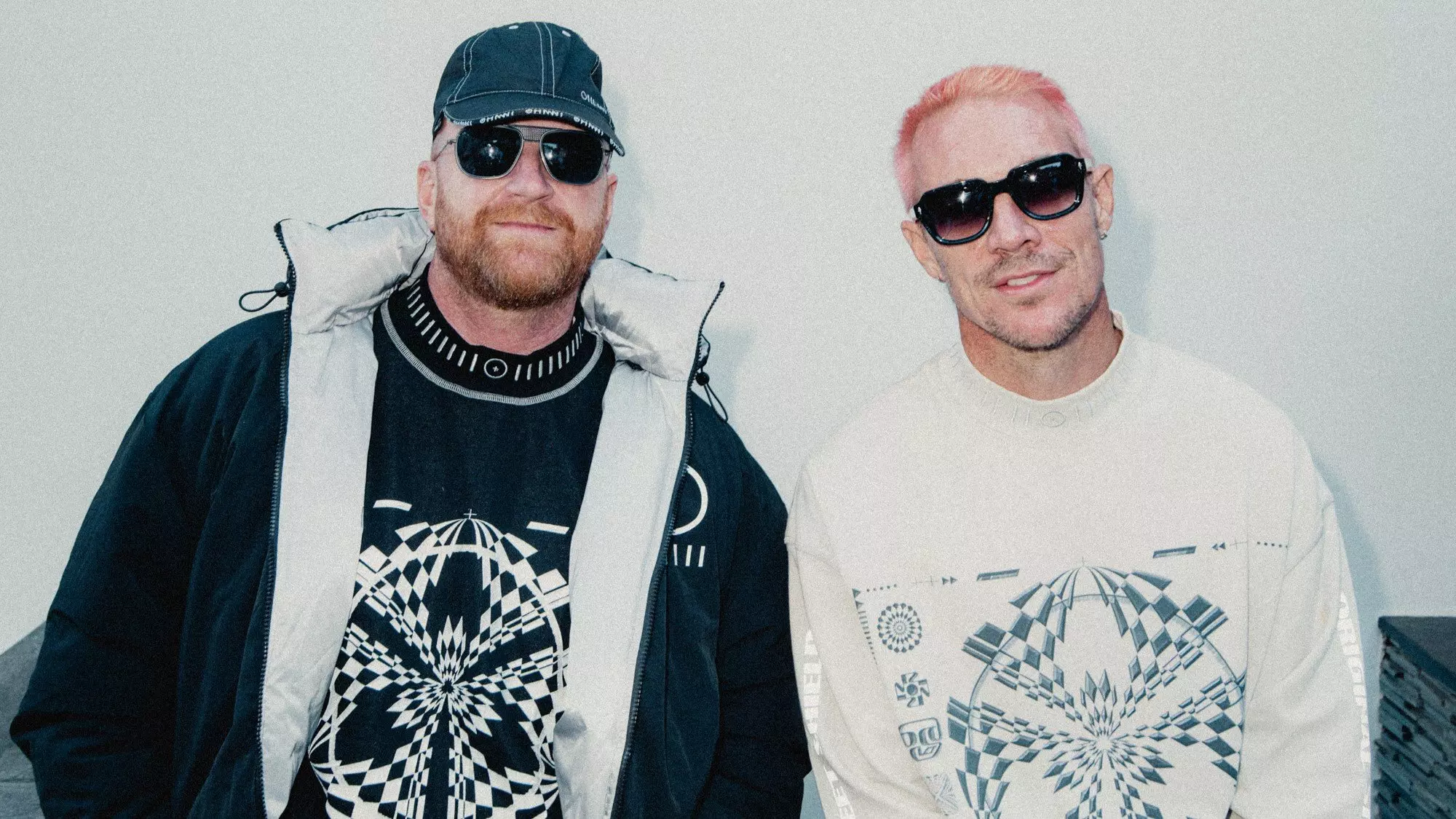
How Major Lazer's 'Guns Don't Kill People…Lazers Do' Brought Dancehall To The Global Dance Floor

YOASOBI Performs "Idol" | Global Spin
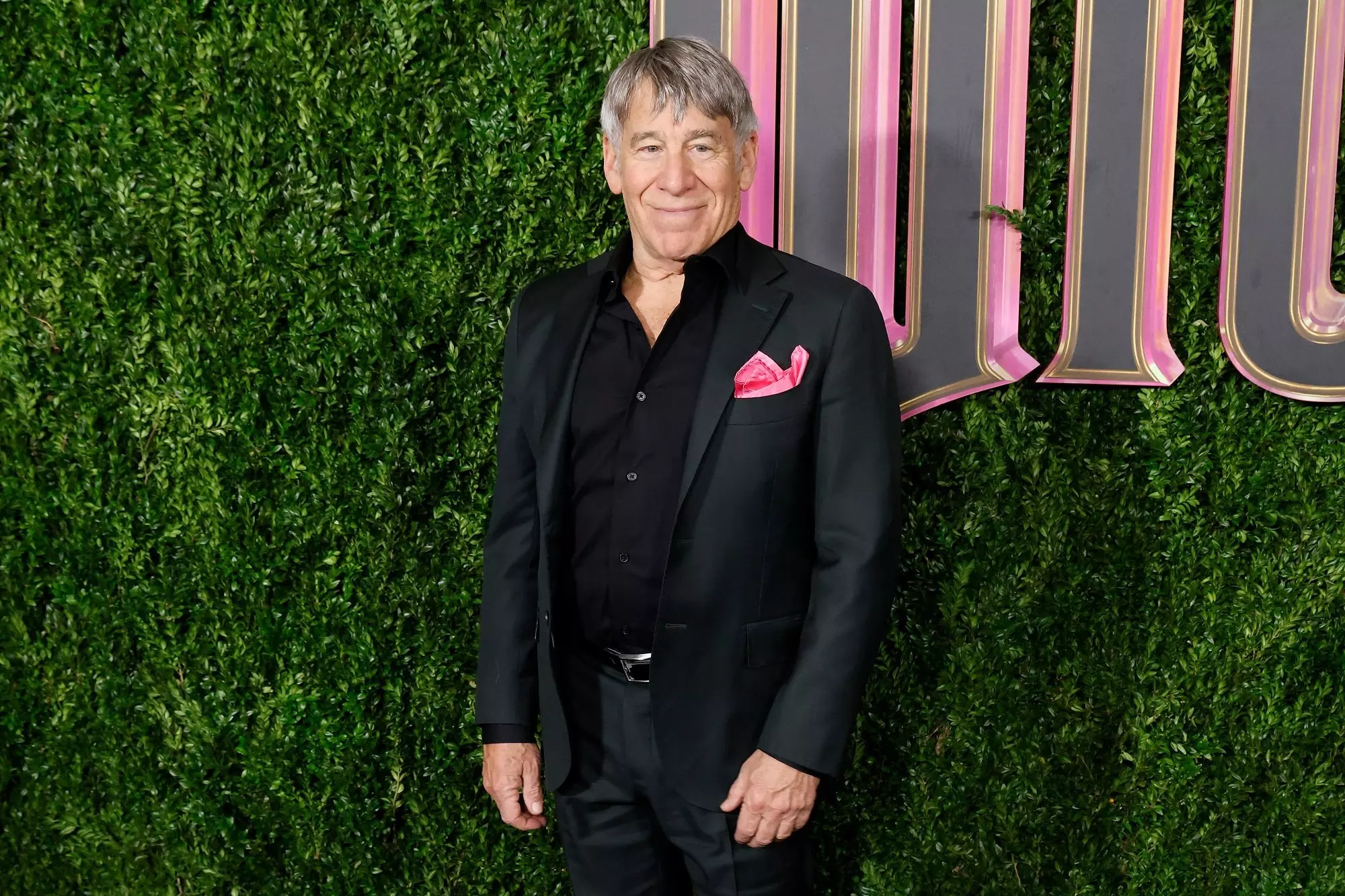
'Wicked' Composer Stephen Schwartz Details His Journey Down The Yellow Brick Road
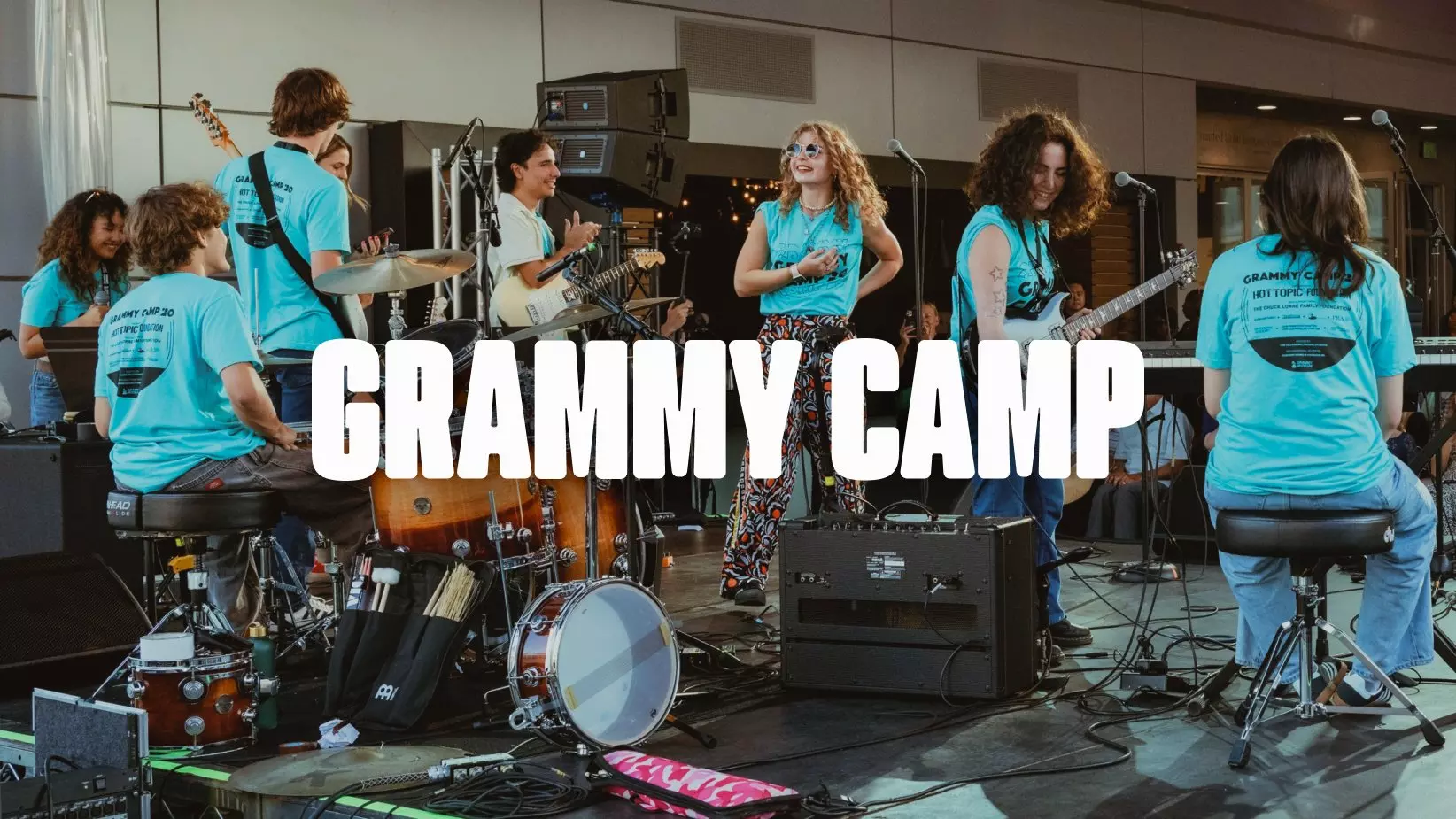
GRAMMY Museum Expands GRAMMY Camp To New York & Miami For Summer 2025
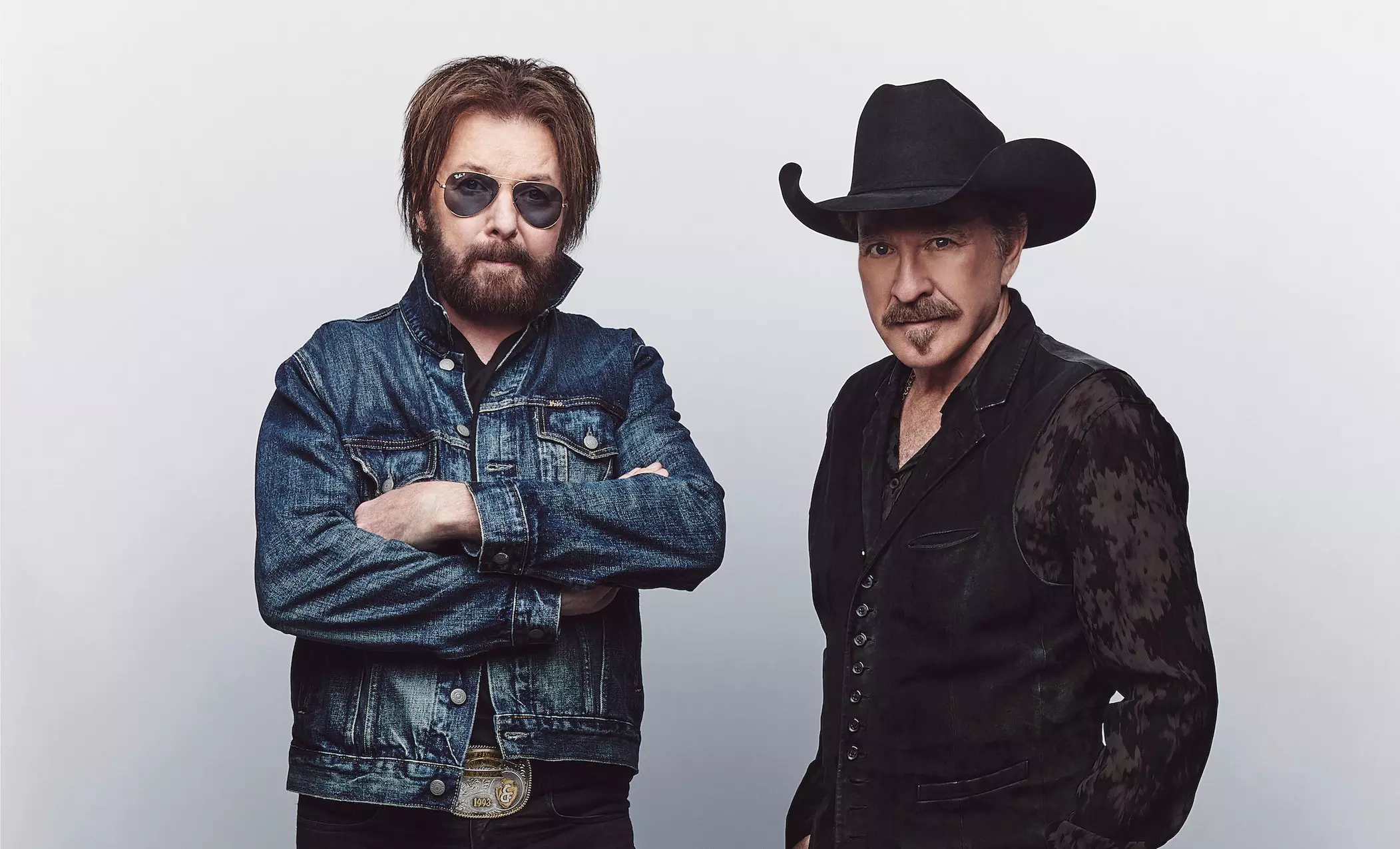
Living Legends: Brooks & Dunn On How 'Reboot II' Is A Continuation Of "Winging It From Day One"
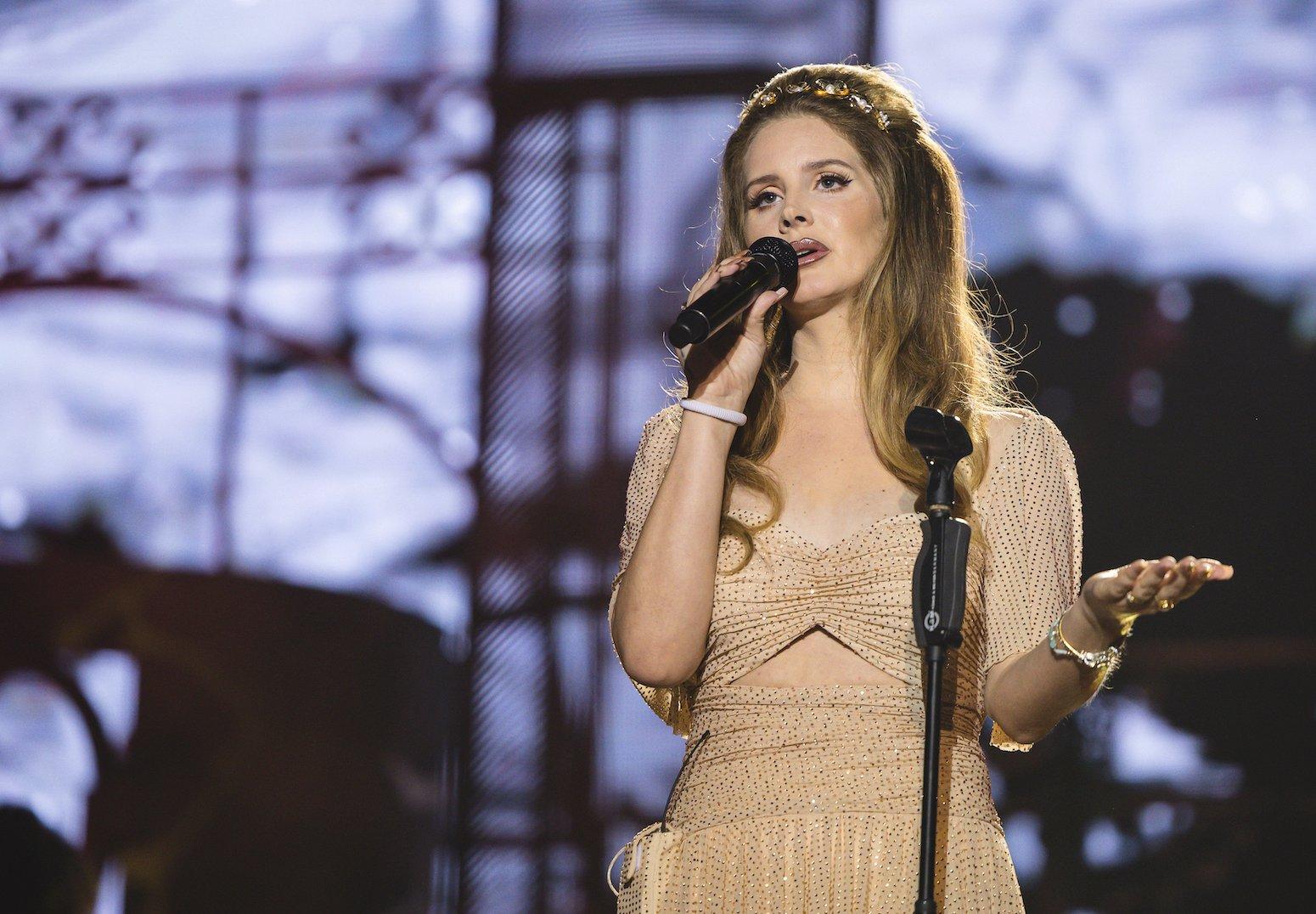
Photo: Xavi Torrent/Redferns
list
Levels Of Lana: 12 Songs To Explore Lana Del Rey's Career For Every Kind Of Fan
As Lana Del Rey's third album, 'Ultraviolence,' turns 10, build — or expand — your knowledge of the melancholy pop queen's catalog.
When it comes to exploring Lana Del Rey's discography, it can be hard to know where to start. The pop songstress has a sprawling catalog, consisting of nine albums, four EPs, and a handful of other standalone singles.
You could begin with Born To Die, her highly influential major label debut, or its moody follow-up, Ultraviolence, her first to top the Billboard charts and ultimately establish her staying power as an artist. Perhaps you choose to start with her Album Of The Year GRAMMY nominees Norman F—ing Rockwell! or Did you know that there's a tunnel under Ocean Blvd.
Or maybe you're an incredibly diehard fan with encyclopedic knowledge who wants to start where it all began, on Rey's first album Lana Del Ray (note the spelling difference), which never saw official physical release and contained just a rough draft of the cultural force Del Rey would become.
Following Del Rey's career is rewarding, but requires some commitment to listen to, and understand, everything she's put out. It can be intimidating to approach an artist with such a robust, varied catalog. You can go with more mainstream pop offerings like her collaborations with Taylor Swift and The Weeknd, or dive into something more inspired by the orchestra like early track "National Anthem." This is true for fans with any amount of exposure to Del Rey, from those just discovering her music to those looking to become an expert.
As Ultraviolence turns 10, GRAMMY.com presents the levels of Lana, a series of jumping off points to explore all the music Del Rey has to offer. Dig into three songs across four different levels of fandom — Beginner, Intermediate, Expert, and Diehard — to further your Lana knowledge. These songs give a peek into various aspects of Del Rey's body of work, and serve as encouragement to continue exploring.
Beginner
"Summertime Sadness," Born to Die (2012)
The Beginner Level of Lana is for those who have heard of Del Rey, but have never sat down with her music before. This makes "Summertime Sadness," her biggest song to date, the perfect place to start.
It's reductive to simply label Del Rey's oeuvre "sad girl music," but for the uninitiated, it's a simple descriptor to start with. "Summertime Sadness" combines the pop production, elements of classical music, and existential despair that is present throughout Del Rey's career. And Cedric Gervais' remix has turned "Summertime Sadness" into a club banger to help her appeal to those who gravitate more to the dance floor.
"Young and Beautiful," The Great Gatsby: Music from Baz Luhrmann's Film (2013)
It speaks to Del Rey's cultural reach and musical vision that a non-album single is one of her most iconic songs. Written for the 2013 The Great Gatsby movie adaptation, "Young and Beautiful" also serves as a helpful thematic introduction to Del Rey.
Throughout her writing, Del Rey examines youth, Americana, and the American Dream, and how each of these uniquely American ideals are full of decay and liable to corruption and disappointment. On "Young and Beautiful," she asks if her lover will still care when she's no longer either of those things, and the somber tone indicates the likely answer. This song will introduce fans to Del Rey's penchant for using orchestral backing for her music, and illustrate how intertwined with popular culture she really is.
"Mariners Apartment Complex," Norman F—ing Rockwell! (2019)
The past two songs have introduced Del Rey's "sad girl" persona, but over the years, she has evolved far past being so easily defined. "Mariners Apartment Complex" is the perfect next step for beginners, opening up the popular perception to her to reveal more of her complexity.
Lyrically, it finds Del Rey pushing back on sorrow being her only emotion. Musically, it's a great introduction to more of the ethereal, synth-filled sound that has come out of her partnership with superproducer Jack Antonoff. And in terms of placing her within the culture, "Mariners Apartment Complex" is the first single from her sixth album Norman F—ing Rockwell!, which earned Del Rey her first Album Of The Year nomination in 2019.
Intermediate
"Brooklyn Baby," Ultraviolence (2014)
At the Intermediate level, it's time to start getting into more of the nuances that Del Rey brings to her writing — and, in turn, how much she's influenced her peers, and how respected she is amongst them.
"Brooklyn Baby" is some of her sharpest writing, equal parts playful needling and affectionate tribute to the snooty New York art scene. One of the most indelible tracks off of Ultraviolence, the song epitomizes the entire record's move towards more rock instrumentation, with a guitar-based sound. It references legendary rock artist Lou Reed, who was slated to appear on the track before his death in late 2013, showing just how highly she's thought of by other artists.
"Love," Lust for Life (2017)
For as much as Del Rey recognizes how fallible many of our culture's ideals are, she's always been a romantic. "Love," the first single from 2017's Lust for Life, is a prime example of this.
The whole album is a big play on her love of classic Hollywood imagery, including the video for "Love," and the song is a dreamy throwback to '50s love songs. If "Mariners Apartment Complex" chides anyone thinking Del Rey can only be sad, "Love" is a full rebuke, as it's one of her most straightforwardly optimistic tracks. Commercially, "Love" was Del Rey's highest-charting feat since Ultraviolence (landing at No. 44 on the Billboard Hot 100), further establishing that she had longevity.
"Chemtrails over the Country Club," Chemtrails over the Country Club (2021)
2020 and the pandemic did a number on everyone, radically altering lives and shaking faith in many of the institutions of everyday life. That unmooring is felt on Del Rey's seventh album, Chemtrails over the Country Club, and particularly on its title track.
Del Rey is as sharp as ever in exploring the pulse of American society on the dreamy, disaffected number. "You're in the wind, I'm in the water/ Nobody's son, nobody's daughter" is a breathtaking piece of writing that became a TikTok favorite, illustrating Del Rey's continuing ability to relate to the youth.
Expert
"F—ed My Way Up To the Top," Ultraviolence (2014)
As we enter the realm of the Expert Lana Del Rey fan, we're firmly out of album singles territory. From here, it's all deep cuts and non-album tracks.
Del Rey has been no stranger to controversy — some warranted, some not. An early knock against her was that the mid-20th century aesthetic and perceived submissiveness in her music was anti-women or anti-feminist, a surface-level reading that in the years since has been largely dispelled.
The singer has worked to combat it herself on tracks like Ultraviolence's "F—ed My Way Up To the Top," which takes that perceived notion to its extreme. At the same time, it's another in a long line of tracks in which Del Rey has embraced her own sexuality and sensuality as something to be celebrated and claimed, not something to be ashamed of.
"Art Deco," Honeymoon (2015)
2015's Honeymoon isn't necessarily underappreciated, as it received positive reviews upon release debuted at No. 2 on the Billboard 200, but "Art Deco" isn't likely to appear on many playlists. It should, though, as the track illustrates how much of musical chameleon Del Rey really is, with a sultry, hip-hop inspired rolling beat.
It treads some familiar territory thematically with trying to find acceptance in night life, but Del Rey is really comfortable here. She shows more of her knowledge of art history by relating the subject of the song to the defining characteristics of the titular art movement, revealing just how much thought she puts into her aesthetic.
"Fingertips," Did you know that there's a tunnel under Ocean Blvd (2023)
Did you know that there's a tunnel under Ocean Blvd is arguably Del Rey's most intimate album, exploring details of her family and their history that fans have only previously seen brief glimpses of. At the same time, it is partially an examination of her own legacy and work, only natural for someone with as much output as Del Rey, let alone her frequent references to death and finality.
Both of these things combine in "Fingertips," a standout track from the album. A nearly six-minute long ballad, it's musically airy while emotionally devastating — and, for a true Del Rey fan, encapsulates so much of her legacy in just one song.
Diehard
"Yayo," Paradise (2012)
For fans in the Diehard level, everything before is old news. This is for fans who want to fully live the Lana life, who have all her albums on vinyl and have carefully built their image and fashion around her.
Speaking of her image, this section starts with "Yayo," an extremely early deep cut. This track originally appeared on Lana Del Ray before being reworked and rereleased on the Paradise EP in 2012. The song leans heavier than most into the '50s imagery and floats along at a dreamy, lilting pace. While not as refined as her later work, "Yayo" is an indicator Del Rey had a solid idea of who she wanted to be as soon as she started.
"Season of the Witch," Non-album Single (2019)
Del Rey has done several covers throughout her career, and quite successfully. Norman F—ing Rockwell! features her cover of Sublime's "Doin' Time," which is one of the highlight tracks from the record. Less known is Del Rey's spooky cover of '60s classic "Season of the Witch."
Written for the 2019 horror film Scary Stories to Tell in the Dark, the song fits Del Rey's style perfectly. The Americana/flower crown aesthetic of her younger years always leaned witch-adjacent, and Del Rey takes her soft vocals into playfully sinister territory. It's a fun cover, and shows just how many gems Del Rey has in her discography for those fans willing to dig.
"Say Yes to Heaven," Non-album Single (2023)
"Say Yes to Heaven" was never supposed to be heard. A late cut from Ultraviolence, the track remained buried for years before being leaked in 2016. It lurked on the internet, only known to superfans, before gaining steam with the rise of TikTok and finally seeing an official release in 2023.
The deep cut is peak Del Rey ballad material, a tender love song imploring her partner to accept happiness. It's another rebuke of the idea that she can't be happy, and it gives insight into some of her earlier writing.
As a resurfaced older track, "Say Yes to Heaven" may not necessarily indicate the direction Lana Del Rey is set to go on her forthcoming album, Lasso (especially considering Del Rey has teased she's "going country" for her next release). But it's a beautiful reminder of the affecting narratives and arresting vocals that have made her beloved to so many, no matter the level of fandom.
Songbook: A Guide To Billie Eilish's Musical Ventures & Artistic Ingenuity




